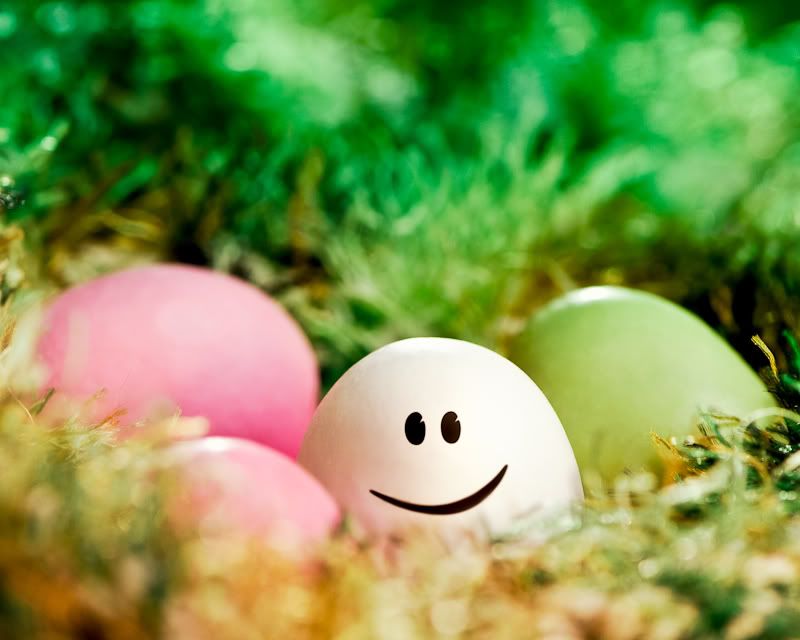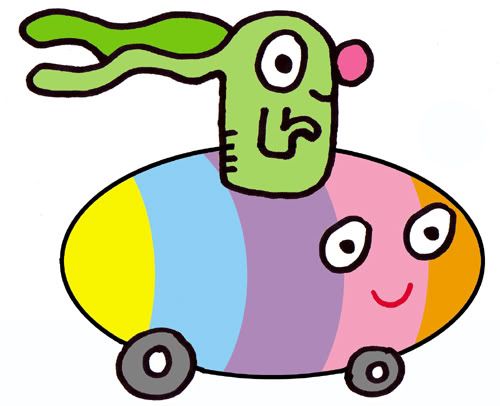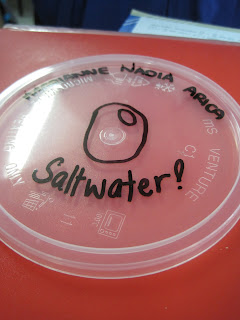    |
Day Two 10th Feb 2010
0850 frothing of the egg. our almost fully deshelled eggs! :) close-up! its almost translucent. can you see the flab skin at the left hand side? froth at the surface of the vinegar. bubbles are present on the surface of the vinegar as egg shells are made of calcium carbonate and when it reacts with vinegar, it produces bubbles of carbon dioxide. 0950 TRANSLUCENT EGGS :D there is a little piece of shell still attached to the egg on the right hand side. bubbles appear on every egg! the disgusting container after one day of soaking. wow! the eggs are translucent! we can see the insides! close-up. our precious and fragile eggs. the eggs are translucent as the eggs are almost fully deshelled as it has been soaked in the vinegar overnight. the yolk of the eggs are already visible. 1050 bubbles of carbon dioxide are still present even though it is almost fully deshelled. approximately 24 hours have passed and it is time to take the deshelled eggs out of the vinegar. measurements of the eggs are to be taken. The liquids that we will be using are COKE ZERO! COKE! & DISTILLED WATER! we were suppose to use salt water, and sugar water(sucrose solution). however, while we were washing the eggs, one broke :( so we use distilled water instead of salt and sugar water. the egg still had some shell(calcium carbonate) on it. the egg, fully deshelled. ready to be put into different solutions! After school, in the lab In the biology lab our deshelled and translucent eggs :) disgusting brown shell floating on the surface. pouring away the vinegar and washing the egg. LOOK! the egg is taking a bath! you can see the egg yolk! sadly, one egg broke in the process of washing them. therefore, we are left with 4 - 1 = 3 EGGS! after the egg broke, we thought that the eggs were not fully deshelled. but ms koh told us to rub the surface GENTLY. finally, the egg!! there is an interesting pattern on the egg. residue in the vinegar. it is probably made up of the portions of eggshell that was floating at the top earlier. the membrane of the broken egg. we still have this as there is still thin see-through membrane that is normally between the shell and the egg white left. the eggs are then being weighed with the electronic balance. this is egg A and it is 83.9g, the heaviest of all! this is egg B and it is 75.6g, the lightest! and this is egg C, weighing 79.6g. we record the results of the eggs in a draft table. we were meauring the circumference of the eggs, however, we decided to omit it in our recording as it is not very accurate as there are different readings at different points of the egg as it has an irregular shape. Egg A, B, and C the solutions we are using (coke, coke zero, distilled water) the liquids and the eggs. meauring the amount of liquids needed to cover the egg completely. this way, the results would be more accurate as there are equal amount of liquids in which the eggs are submerged in. a video of us measuring the amout of coke zero to be poured into one of the containers.  the liquid will be poured into the eggs. a video of us pouring in the different liquids at the same time. the empty coke can. egg soaked in distilled water. egg soaked in coke egg soaked in coke zero. lined up at the side because there wasnt any space left in the big box. the eggs to be left at the side of the biology lab to be kept overnight.
|




















































